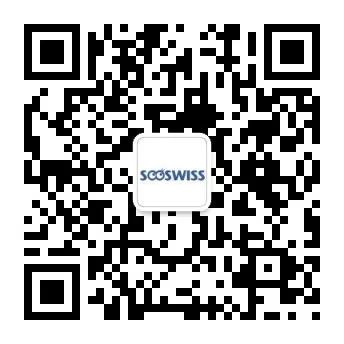
发布时间:2023-05-31
瑞士公立小学入学流程
瑞士公立学校体系以各州政府的安排为基础,由各州自行订立教学大纲,没有统一的规定,因此,家长们很难找到一个统一的入学流程和准备目录。此外,瑞士公立学校的授课语言并不是英语,而是所在州的官方语言。瑞士共有德语、法语、意大利语、罗曼什语四种官方语言。这对于刚到瑞士,希望孩子进入公立体系的家长来说,无疑加大了难度。本文将会以纳沙泰尔(瑞士法语区的一个州)为例,介绍公立学校的入学流程。
在纳沙泰尔,本地居民的孩子从4岁起(截止日期是当年的7月31日),可以进入瑞士义务教育,学制为11年。因为学校的假期也根据各州的公共假期而定,所以具体的开学日期每年都会变化,一般是八月中旬,例如今年秋季为2023年是8月14日开学。

报名及入学前准备
1.报名入学:从义务教育直到高级中学教育阶段,有条件在瑞士上公立学校的前提是,家长有三个月以上的瑞士居留许可,孩子才可以申请就读公立学校。刚开始,家长和孩子都可能存在的困难是语言适应问题,家长可以考虑在来瑞士前跟孩子一起开始学习当地语言,或者到瑞士尽快参加语言强化课程,以便更快融入。
2.有适龄儿童的家庭一般在冬季末期就会收到学校的告知信,通知家长孩子将会被分配到具体哪个学校入学。学校的分配基本上遵循就近学区入学原则。如果家长想要换别的学校,需要提前给学校写信列明详细原因,学校会根据具体情况进行决策,最后通知家长结果。但是,与国内区分重点和非重点学校不同,瑞士公立教育水平普遍很高,而且水平也比较平均,因为学区之间差异不会很大。
3.如果家长在该年度2月之后才抵达瑞士,则可以主动跟政府联系,或与附近的学校直接联系,填写入学申请表报名,提供家庭住址,学校会根据情况安排入学。如果该学校名额已满,会主动协助调配,调配学校的最终结果可能需要到六月中下旬才有。
4.瑞士公立学校一般会在开学前举行一个师生见面会,或者是安排孩子一个小时熟悉环境的活动,此类活动会用当地语言进行(如德语区就是德语,法语区是法语,意大利语区用意大利语)。
入学准备小贴士
入学申请需要的文件主要有:入学申请表、孩子的出生证明、瑞士居留卡、保险卡和地址证明。需要注意的是,瑞士的学前教育(幼儿园)为两年,在大多数州属于义务教育,孩子一般4岁入园,到6岁进入小学阶段。家长需要提前准备的上学物资跟国内的类似,例如书包、文具、纸巾、室内鞋、水壶等。
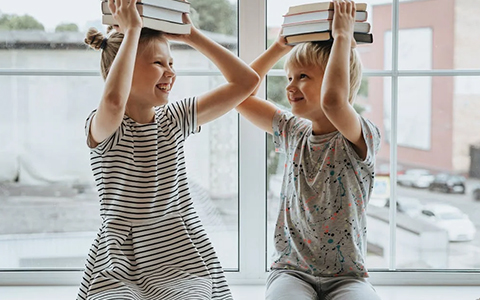
公立学校课程体系
瑞士的义务教育阶段重视孩子的文理平衡发展,除了语言课程,学校还开设数学课、自然科学课、阅读课、音乐课、体育课、手工课、艺术鉴赏课、社会人文科学课等课程。我们不难发现,瑞士学校从小就非常注重启发孩子的科学思维、培养孩子的艺术修养和文化内涵。
同时,瑞士人相信“强健的体魄才能承载强大的灵魂”,学校不仅重视学生的体育锻炼,更鼓励学生到大自然中去发现和探索,注重孩子身心的全面发展。以纳沙泰尔的公立小学为例,学校每月会组织一次校外活动,利用瑞士得天独厚的自然环境和地理优势,带领学生走进森林探险、乘船湖上泛舟、登山极目远眺,通过与自然的接触帮助学生塑造热爱生活的态度、养成积极乐观的性格。关于瑞士公立教育体系概览详见本公众号文章《瑞士公立教育系统》。
学校日常安排
一般每个班级大约有18个孩子,由一个老师主要负责大部分课程的教学,也有可能会有两位老师共同负责,也可能会有专业助教协助。
由于年级、地区以及学校的不同,课程的安排会有所区别。瑞士学校的作息时间安排也与国内的差异很大。例如,在大部分瑞士地区的第一年,4岁的孩子一周只上4个半天的课,到十二点左右就会放学回家,下午的活动由家长自行安排。5岁的孩子在课程安排上会更丰富一些,在一周中有几个下午可能会安排课程,到下午三点半左右放学。从6岁开始,孩子们进入小学后,则会有一个相对稳定的时间表,上午一般都有课,下午有课程的话会到三点半,一般周三下午没有课。
学校中午午休时间约两个小时左右,学校不提供午餐服务,一般家长需要在家自行准备午餐。双职工家长可以提前申请学校的课后托管,课后托管可以包括午饭,以及下午没有课的时间提供课外活动(基本在学校里,不含兴趣班服务)。每个学校的托管有名额限制,双职工家庭优先,建议尽早申请。另外,家长可以自行给孩子准备课间加餐,学校建议带健康食品。一般家长可以准备奶酪、三明治、水果蔬菜条以及不带糖的全麦饼干等。
开学之后,学校一般会在9月份举行一次集体家长会(使用当地官方语言交流)。因而建议家长尽早准备当地语言学习。之后会根据情况安排一对一的家长沟通。如果有语言困难,家长可以要求学校安排翻译。
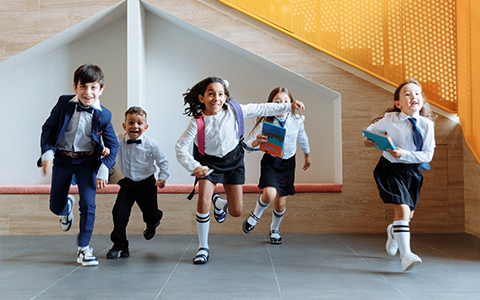
语言教学
瑞士人大多掌握多种语言,这也得益于瑞士义务教育对于学生语言学习的重视。纳沙泰尔州位于瑞士法语区,虽然其州立中小学日常使用法语教学,但学校同样重视其他语言的教学。法语区的公立学校在义务教育第一阶段会同时教授法语和英语,并在第二阶段加入德语课程,也就是说瑞士的小学生在毕业前能够最少掌握三门语言。此外,纳沙泰尔州在初中教育阶段有拉丁语的学习,旨在通过学习这门古老的语言,帮助学生锻炼语言能力和思维能力,提高学生的文学素养。
瑞士教育非常注重因材施教,公立学校也不例外。纳沙泰尔公立中小学的教学手册中明确提到,对于母语非英语或法语的学生,学校会组织额外课程,帮助他们补习语言,以缩小他们与同龄人在语言上的差距。这类语言补习课程没有开课人数的要求,即便只有一个学生需要语言补习,学校都会组织相应的课程,为学生提供免费的一对一语言加强课程。既有多语言的环境,又有量身定制的语言课程,这就是瑞士人可以成为掌握多语言国际公民的奥秘。
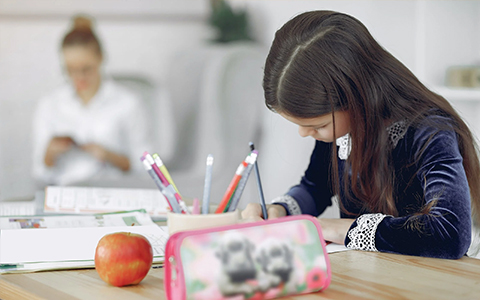
课外活动和假期
此外,瑞士每个地区都会成立公立教育联盟,该联盟为当地公立中小学的学生提供丰富的体育活动。纳沙泰尔的体育活动中心对公立小学的学生提供价格优惠的体育培训班,培训课程包括游泳、自由潜水、乒乓球、蹦床、舞蹈、格斗术、瑜伽等。培训课程每周一次,学生可根据自己的喜好选择课程,每学期有12-14节课,报名一学期的课程仅需要60瑞郎。
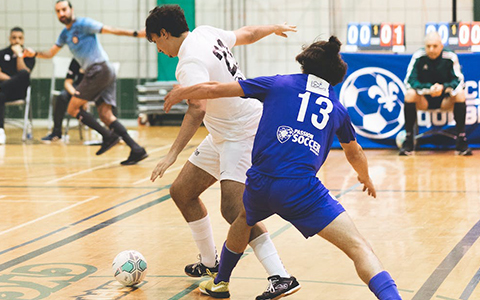
值得注意的是,瑞士学校(包括公立和私立学校)的假期很多,大概一年有14-16周。以纳沙泰尔州为例,有秋季假期两周(9月底到10月中旬),圣诞假期两周(12月底到1月中旬),寒假或滑雪假一到两周(2月底到三月初),春季复活节假期两周(3月底到是四月中旬),暑假六周(七月初到八月中旬),请家长根据校历合理安排时间照顾孩子。
其他
最后,刚到瑞士的外国家长也会考虑学校会不会有霸凌或者排外现象。瑞士整体非常多元化,本国的不同州都有很大文化差异,自由、平等、尊重理念是普遍共识。瑞士家长整体素质很高,纳沙泰尔的外国人也很多,整体上对外国人非常友好礼貌,老师对于小朋友也很友爱,有耐心。当然小朋友之间小争吵免不了,而且世界各地也都可能存在霸凌或者排外现象,如果真的遇到相关问题,学校也会实施很多措施去应对。
结语
瑞士的公立教育总体教学质量很高,注重全面发展。特别幼儿园和小学阶段教育是童年的天堂,注重教授生活技能和社会规则,活动多样化,寓教于乐,很能平衡学习和社会情绪发展。此外,公立教育还有一个很重要的优势,从瑞士的公立中小学毕业后,可直接进入瑞士的公立高中学习。拿到瑞士高中文凭,不仅可以免试直接申请进入全球排名前二十的苏黎世联邦理工学院和洛桑联邦理工学院,以及一些瑞士知名的公立大学,还可以轻松对接全球的梦想名校。
Original English Text
Admissions to Swiss public primary schools
The Swiss public school system is based on the cantonal arrangement, with the syllabus set by each canton and no uniform rules. The language of instruction varies according to the three official languages spoken in the canton where the school is located. As a result, it is not easy for parents to find a general admissions procedure and preparation list, which foreign parents who are new to Switzerland may need more supports if they wish to enter the public system. In this article, we will use Neuchâtel (a canton in the French-speaking part of Switzerland) as an example to share some information regarding the public school admission process and preparation.
In Neuchâtel, children of local residents can join the Swiss compulsory school system from the age of four (the cut-off date is 31 July of the current year) and the school year lasts for 11 years. The exact start date varies from year to year as school public holidays also follow those of the cantons. In general, the school starts in mid-August. For 2023, it is on 14 August.
Enrolment and preparation
1. Enrollment: The prerequisite for being eligible to attend a public school in Switzerland is that the parents have a residence permit in Switzerland for more than three months and the child can apply to attend a public school. Themost difficulty they encounter at the beginning is the language barrier. Parents can consider that they start learning the local language with their child before coming to Switzerland, or take an language enhancement course as soon as they arrive to integrate smoother.
2. Families with school age child/children will normally receive a letter from the public school towards at the beginning of the year informing them of the exact school their child will be allocated. The allocation of schools basically follows the principle of admission to the nearest school district. If parents wish to change schools, they need to write to the public school in advance for detailed justifications, and the school’s management will make a decision on a case-by-case basis and inform parents of the outcome later. However, unlike in China where a distinction is made between priority and non-priority schools, the standard of public education in Switzerland is generally very high and equal, as there are no differences between school districts.
3. If parents arrive in Switzerland after February of the year, they can take the initiative and contact the public school administration, or contact a nearby school directly. They just need to sign up by filling out an enrolment application form and providing their home address, which will be arranged according to the availability of places. If the school is full, it will assist them with the allocation of places. However, the final outcome of the allocation may not be available until mid to late June.
4. Swiss public schools usually hold a teacher-student meeting during the school year or some regions may arrange a one-hour familiarization program for children, which is conducted in the local language (e.g. German in German-speaking areas, French in French-speaking areas and Italian in Italian-speaking areas).
Tips for preparing for school
The main documents required for enrolment are: an application form, the child's birth certificate, Swiss residence card, insurance card, and proof of address. It is important to note that children start school in Switzerland at the age of four, with kindergarten lasting two years and primary school officially starting at the age of six. Parents need to prepare school supplies in advance, similar to those in China, such as school bags, stationery, tissues, indoor shoes, water bottles, etc.
The public school curriculum:
In addition to language classes, schools offer mathematics, natural science, reading, music, physical education, handicrafts, art appreciation and social and humanities classes. It is easy to see that from an early age, Swiss schools place great emphasis on inspiring children to think scientifically and to develop their artistic and cultural qualities.
At the same time, the Swiss believe that "a strong soul is only as strong as its body", so schools not only emphasize physical exercise, but also encourage students to discover and explore nature, focusing on the all-round development of the child's body and mind. The public primary schools in Neuchâtel, for example, organize monthly activities that take advantage of Switzerland's natural environment and geography, taking students on expeditions into the forest, boat trips on the lake and hikes in the mountains, helping them develop a love of life and a positive and optimistic attitude through contact with nature. (For an overview of the Swiss public education system, see the article "The Swiss Public Education System" in this public account).
The daily school schedule
Each class has around 18 children and one teacher is responsible for most of the lessons, but there may be two teachers or specialist teaching assistants.
The curriculum varies according to grade, region, and school. The school timetable is very different from that in China. For example, in the first year of school in most Swiss regions, 4 year olds attend 4 half days a week and are dismissed from school at around 12.00 p.m. Parents can arrange their own activities in the afternoon. From 5 year old, kids have a more varied curriculum and may have classes on a few afternoons during the week and are dismissed at around 3.30 p.m. From the age of 6, kids enter primary school with a relatively stable schedule, with classes in the morning until noon, and afternoon until 3.30 p.m.Usually, there is no class on Wednesday afternoons.
The school does not provide a lunch service and parents are usually expected to prepare their own lunch at home. Parents of dual-earners can apply in advance for after school care, which can include lunch, accompaniment on the way to school for the youngest childrenand after school activities from 3.30pm to 6pm (generally in school, not the same as the extracurricular activities). The number of places available is limited and the priority is given to dual-income families, so early application is recommended. In addition, parents can prepare their own additional meal. The schools recommend healthy food. Parents can usually prepare cheese, sandwiches, fruit and vegetable bars, and whole meal crackers without sugar.
After the start of the school year, there is usually a group meeting with parents (in the official local language) in September. Parents are therefore advised to prepare for the local language study as early as possible. One-to-one meetings with parents may also be arranged. If there is a language barrier, parents can ask the school to arrange a translator.
Language teaching
The majority of Swiss people are multilingual, thanks to the emphasis placed on language learning in compulsory education. The canton of Neuchâtel is located in the French-speaking part of Switzerland, and although French is used on a daily basis in cantonal primary and secondary schools, there is also a strong emphasis on the teaching of other languages. Public schools in the French-speaking region teach both French, German, and English, meaning that Swiss pupils are able to master at least three languages before they graduate. In addition, the canton of Neuchâtel has Latin class in middle education, with the aim of helping pupils to develop their linguistic and thinking skills and to improve their literary skills through the study of this ancient language.
Swiss education places great emphasis on teaching according to different characteristics and needs, and public schools are no exception. The manuals of the public primary and secondary schools in Neuchâtel explicitly mention that for pupils whose mother tongue is not English or French, the school organizes additional courses to help them catch up on their language in order to close the language gap with their peers. There is no requirement for the number of students to attend these language tuition courses, and even if only one student needs language tuition, the school could organize the appropriate course to provide the student with free one-to-one language enhancement lessons. The combination of a multilingual environment and tailor-made language courses is the secret of how Swiss people can become multilingual international citizens.
Extracurricular activities and holidays
In addition, each region has a public education union, which offers a wealth of sporting activities for students in local public primary and secondary schools. The sports activities centre in Neuchâtel offers sports courses at a reduced price for pupils in public primary schools. Training courses include swimming, freediving, table tennis, trampolining, dance, combat arts, yoga and much more. The courses are offered once a week and students can choose their own course according to their preference. 12-14 classes are offered per term and it costs only CHF 60 to register for a term.
It is worth mentioning that Swiss schools (both public and private) have many holidays, for 14-16 weeks a year. In the canton of Neuchâtel, for example, there are two weeks of autumn holidays (end of September to mid-October), two weeks of Christmas holidays (end of December to early-January), one or two weeks of winter/ ski holidays (end of February to early March), two weeks of Easter holidays in spring (end of March to mid-April) and six weeks of summer holidays (early July to mid-August). Please arrange your child's care according to the school calendar.
Others
Finally, foreign parents who are new to Switzerland may also be concerned about the situation of bullying or xenophobia at school. Switzerland as a whole is very diverse and the country is originally very culturally diverse from canton to canton, and there is a general consensus on the concept of freedom, equality, and respect. There are many foreigners in Neuchâtel and the teachers are very friendly and polite to foreigners. Of course, small arguments between children are inevitable, and bullying or xenophobia can occur all over the world. If you do encounter problems, the school has many measures in place to deal with them.
Conclusion
The overall quality of public education in Switzerland is very high, with a focus on the whole person development. In particular, kindergarten and primary periods are heavens for kids where life skills and social rules are taught, activities are varied and fun, and a good balance between learning and social and emotional development. Another important advantage of public education is that after graduating from a Swiss public primary or secondary school, you can go directly to a Swiss public high school. With a Swiss high school diploma, you can not only apply directly to the world's top 20 ETH Zurich and EPFL Lausanne, as well as some of Switzerland's leading public universities, without exams, but you can also easily connect to the world's dream universities.
本文转载自瑞士雷梭勒家族办公室,如有侵权,敬请告知删除。
Sooswiss为您提供
瑞士方向私人管家式的定制服务:
1)家族传承 2)财富管理 3)投资咨询
4)企业服务 5)居留计划 6)国际教育
更多资讯请登录网站 www.sooswiss.com
